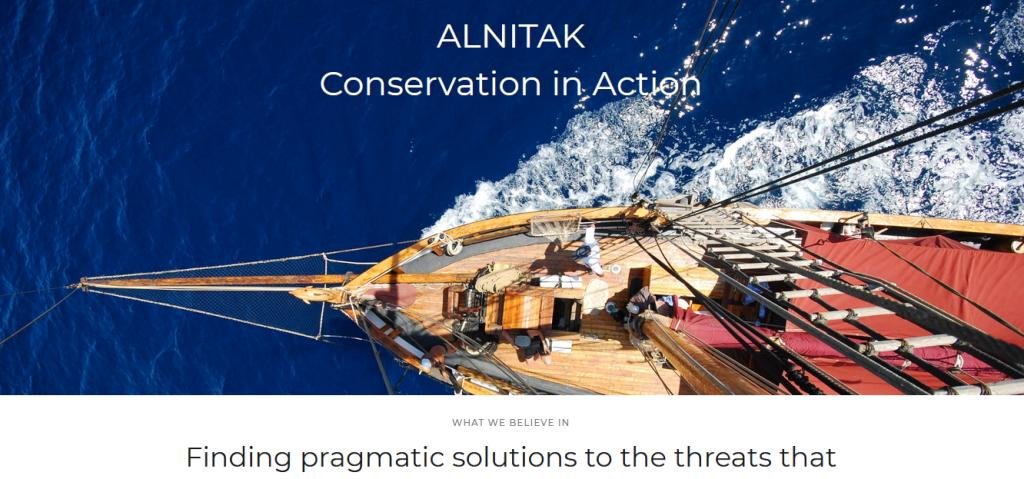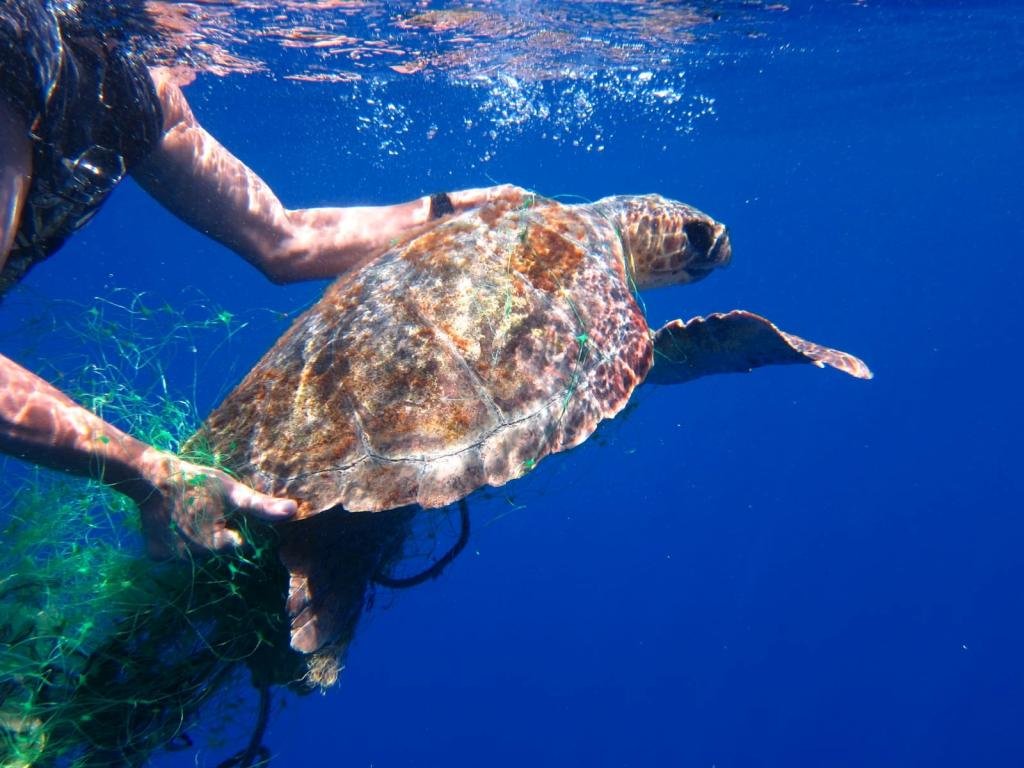An absolutely fantastic project, Alnitak Research Institute is a Spanish non-profit organisation that combines a passion for cultural maritime heritage with a strong will to preserve the Oceans. In 1989 Alnitak restored the historical fishing boat Toftevaag with the purpose of developing science and education programs. Mediterranean expeditions with the Research Institute Alnitak
Above all it is a platform to bring people of all kind together to work on common goals. At present, they sail the Mediterranean Sea conducting different projects and citizenscience expeditions.
The goals
- Survey marine garbage, ilegal fishing, ghost gear, and how it affects wildlife. Thanks to this research, we hope to identify aggregation sites and also production areas.
- Survey top pelagics: dolphins, turtles, whales and more. With a focus on loggerhead turtles and Risso’s dolphins, but also collaborating actively with partners monitoring fin whales, sperm whales, and more. In terms of turtles, we use satellite transmitters to collect vital data, implementing the Stanford University / National Geographic – Tag a Giant vision.
- Monitor MPAs (marine protected areas) and strategies such as the marine traffic separation scheme off Almería which was implemented to reduce ships strikes. Many times, marine protected areas only exist on paper, and its up to groups like us to go out there and basically check what is actually being done.
These projects are supported by and in partnership with US Fish and Wildlife, NOAA, Stanford University, OceanCare, Reina Sofía Foundation, SOCIB, Ecoembes, and others.
The Oasis Project
As opposed to other volunteer opportunities where the contribution and involvement is limited, this one is “immersive” (you have been warned): you live on board the ship, everyone from the captain to yourself has shifts in cooking, cleaning, etc., you are trained to take scientific data, can use our equipment on board such as hydrophone and cameras, and quite frankly, we tend to forget who is volunteering and who is crew.
Every expedition is different, some with better weather than others, some with surprises (such as a white shark sighting in 2019 – you never know what will happen out in the open water), and every volunteer leaves his or her mark behind. Some enjoy the experience so much that they return yearly.
For much more information on how to get involved check out both the facebook page and the website of the Research Institute Alnitak
- Website: https://www.alnitak.org/
- Facebook: https://www.facebook.com/alnitakorg
- LinkedIn: https://www.linkedin.com/company/alnitak-research-institute/
- Expeditions brochure is here: https://linktr.ee/alnitak_org
FAQs About Alnitak Research Institute’s Marine Conservation Expeditions
The Alnitak Research Institute runs immersive, volunteer-led marine science expeditions aboard the historic vessel Toftevaag. These Mediterranean missions engage volunteers in hands-on conservation work—from tracking sea turtles to mapping ghost fishing gear—working in partnership with renowned institutions.
Alnitak is a Spanish non-profit founded in 1989, rooted in both maritime heritage and marine conservation. Its mission is to develop science and education programmes across the Mediterranean, using research expeditions to protect marine biodiversity and cultural memories.
Toftevaag is a restored 1910 Norwegian fishing vessel serving as Alnitak’s research platform. With over 70% of its original hull intact, it symbolises sustainable practices and has hosted thousands of volunteers and scientists over three decades.
Alnitak conducts research on multiple fronts—tracking endangered species like loggerhead turtles and Risso’s dolphins, monitoring marine pollution and ghost gear, and evaluating the efficacy of Marine Protected Areas. These efforts support marine conservation strategies and policy development.
Volunteers join immersive Mediterranean expeditions aboard Toftevaag, living and working alongside the research crew. Activities include navigating, cooking, data collection, and using onboard scientific tools like hydrophones. Projects typically last up to 11 days and are highly hands-on.
Alnitak collaborates with prestigious institutions such as Stanford University, NOAA, US Fish & Wildlife Service, OceanCare, SOCIB, Reina Sofía Foundation, and more. Together, they advance marine research and conservation policies.
Absolutely. Volunteers from age 16 and up have joined the mission. The programme welcomes individuals from all nationalities and experience levels—provided they can adapt to life aboard a historic vessel and contribute actively to conservation work.

